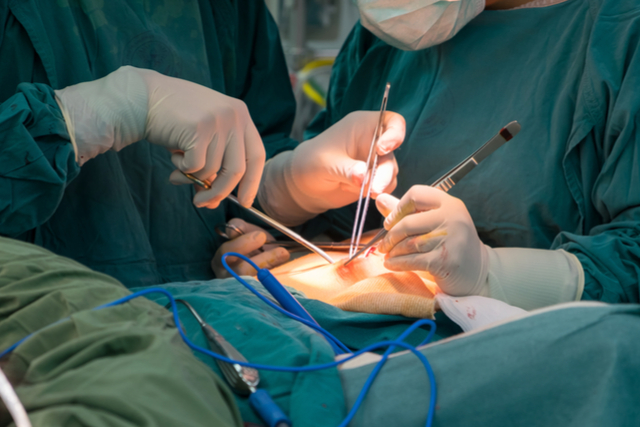Researchers we fund have developed a bioactive stem cell delivery plaster which would be used during heart surgery, to help repair damaged hearts.

The plaster acts like a delivery system for stem cells which would be used at the same time as bypass surgery after a heart attack to boost repair of the heart muscle.
The patch contains hormones and growth factors and would stimulate growth of new blood vessels and muscle cells. Currently, treatments for heart attacks focus on restoring blood flow to the heart when it is cut off.
During a heart attack, the heart is starved of vital nutrients and oxygen, killing off parts of the heart muscle. This weakens the heart and can eventually lead to heart failure, a debilitating condition that makes even every day simple tasks, like climbing the stairs or getting dressed, exhausting.
Kazuya Kobayashi, the lead researcher at QMUL described his research:
“During heart surgery the heart surface is exposed so it’s the perfect time to add the patch. We hope that the patch provide additional benefits of surgery, helping to restore the lost muscle tissue and promote growth of new blood vessels.”
The researchers hope to move these plasters into clinical trials soon. The materials have already been tested in people.
Our Associate Medical Director, Professor Metin Avkiran commented on the findings:
“To realise the immense potential of stem cell-based regenerative medicine for treating heart disease, we need to overcome several important hurdles. A key one of which is developing ways that allow stem cells to stay where they are needed the most and for a sufficient period of time to exert their benefit.
“These exciting findings show that a stem cell dressing which is made of natural materials, and can be applied to the surface of the injured heart without using stitches or glue, can potentially do just that. “Due in large part to research we’ve funded, more people are surviving heart attacks than ever before. But that means there’s a growing number of people at risk of heart failure, as their hearts can’t recover from the damage caused by the heart attack.
“If the benefit shown in this study in rats can be replicated in humans, that could be big step forward towards stopping heart attacks leading to heart failure, which is a debilitating condition that in its late stages is associated with very poor survival.”
Author
Jennifer Mitchell
Source
British Heart Foundation, press release, 2019-09-02.
Supplier
British Heart Foundation
Queen Mary University of London
Share
Renewable Carbon News – Daily Newsletter
Subscribe to our daily email newsletter – the world's leading newsletter on renewable materials and chemicals









